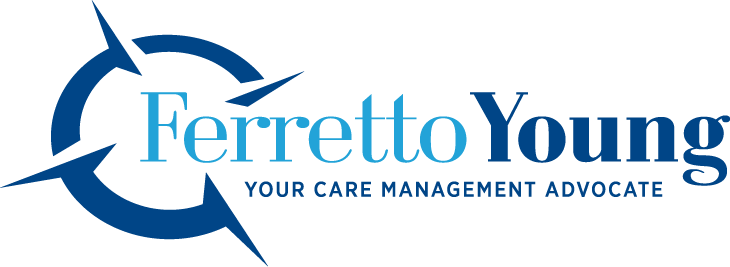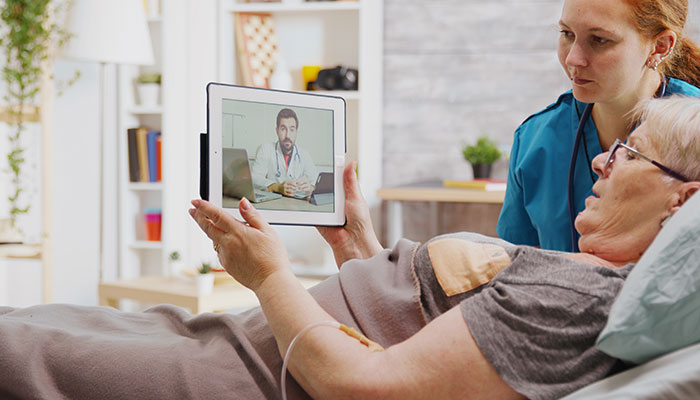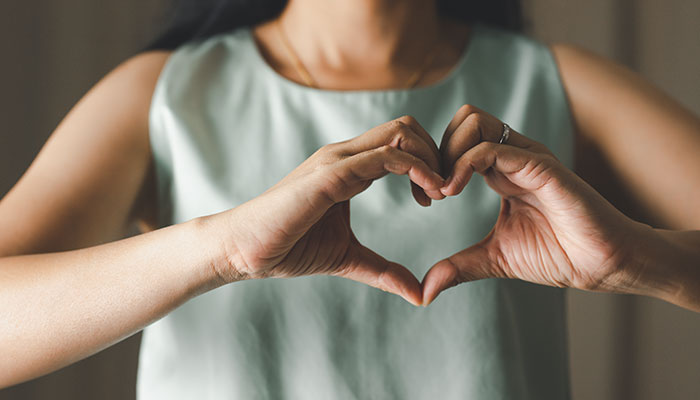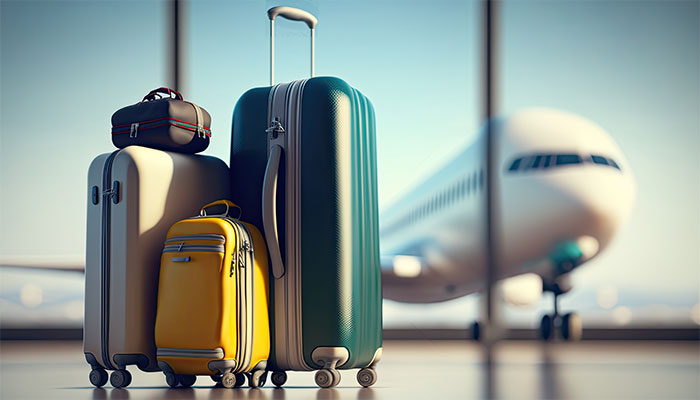Your Eldercare Compass
Helpful tips for family caregivers
July/August 2023
Hospital at Home is a program you may start hearing about more nationwide. Truthfully, it asks a lot of the family. But you do have backup on call. And there is no doubt that patients who qualify have a much smoother recovery with fewer complications. In our middle article we look at the idea that not all selfishness is bad. What do you think? This notion may be helpful for you to consider as a family caregiver. In our last article we are continuing our series on dementia and travel. Check out the things you can do in advance to make for an easier trip.
Bringing the hospital home
Suppose you bring your frail loved one or a relative with dementia to the ER because of trouble breathing. The doctors determine it is pneumonia caused by bits of food being swallowed into the lungs.
Rather than stay in the hospital, they suggest your relative use the Hospital at Home (HAH) program.
With HAH, your loved one is immediately set up at home with a hospital bed, an oxygen tank, and IV antibiotics. Your relative’s blood pressure, pulse, oxygen, and temperature are then tracked remotely. A phlebotomist comes to the home several times a day to draw blood so they can monitor how the infection is going.
Nurses are assigned to visit once or twice per day. Consults with the doctor may occur via iPad. Or a doctor may come to the home if needed. A respiratory therapist comes to the home if needed. And a dietitian may visit to talk with you about foods that might be easier for your loved one to swallow.
Studies of HAH programs versus hospital stays show good results. Infections resolve more quickly. Patients with dementia have fewer experiences of confusion. There’s much less risk of COVID exposure or other hospital-acquired infections. Plus, patients get to recover while eating the food they like in the quiet of their home.
HAH programs have been popular in Europe for decades. The home setting is safer and more comfortable for elders. It’s especially used for conditions such as pneumonia, flares of heart failure or COPD, urinary tract infections, or cellulitis.
Your role Most families applaud the HAH approach. It does feel like better care. But they do acknowledge it’s tiring. The stress from 24/7 responsibility. Also, the disruption of having many different people coming into the home with little regularity in the schedule. Every day is different.
You may feel squeezed for space, dealing with the hospital bed, other equipment, and supplies. You also may be all alone as the first to realize there’s a problem if one occurs. Although nursing help is available on call 24/7, it can feel isolating and challenging. If you are working or still have kids at home, HAH may not be a good fit.
Also note that HAH is not typically available for those with original Medicare. But if your loved one is enrolled in a Medicare Advantage program, it’s worth asking if HAH is an option.
Return to topWhat is "healthy selfishness"?
As a rule, family caregivers are generous. They tend to be empathetic and to want to help. But it is possible to be too generous, with a tendency to sacrifice one’s own needs for the benefit of others. Sound familiar? This is called “pathologic altruism.” People who feel compelled to give despite risks to themselves often end up depleted and depressed (and ironically, less able to give and be helpful).
Current research is exploring the idea that altruism is not all good. And similarly, selfishness is not all bad. In fact, there is such a thing as “healthy selfishness,” defined as “having a healthy respect for your own health, growth, happiness, joy, and freedom.” Sound good? See how you measure up on the Healthy Selfishness Scale:
- I have healthy boundaries.
- I have a lot of self-care.
- I have a healthy dose of self-respect and don’t let people take advantage of me.
- I balance my own needs with the needs of others.
- I advocate for my own needs.
- I have a healthy form of selfishness (e.g., meditation, eating healthy, exercising) that does not hurt others.
- Even though I give a lot to others, I know when to recharge.
- I give myself permission to enjoy myself, even if it doesn’t necessarily help others.
- I take good care of myself.
- I prioritize my own personal projects over the demands of others.
Contrary to what you might have been taught about selfishness, people who score high on this survey are not prideful or domineering. Instead, they tend to be very giving and retain a great desire to be helpful to others. So the next time you find yourself depleted, review the qualities named above. Consider how you might lean more in the direction of healthy selfishness to recharge and sustain your ability to help over the long haul.
Return to topDementia: Packing for a trip
A trip. Sounds like fun! And, it’s more challenging when you travel with a companion who has dementia. But with forethought and planning, you can avoid or readily address common problems.
Things to do a few weeks ahead
- Get an ID bracelet for you and your loved one. In the confusion of crowds, it’s easy for people with dementia to get lost or wander. For their bracelet, note dementia and have instructions to call you on your mobile phone. Yours is in case something should happen to you. Note you are a caregiver of a person with dementia and provide the phone number of a relative who can advise authorities regarding your loved one.
- Purchase a GPS tracking device, ideally for your relative’s shoes. They are less likely to be left behind than a backpack or sweater.
- Have a current photo of your loved one. This will help in the case of separation. You might also consider a laminated card stating your loved one’s name, gender, height/weight, and “Alzheimer’s” or “memory problems.” Discreetly show this to airline personnel, hotel clerks, waiters, or other hospitality staff. They will likely offer you additional assistance or services. At the least they will be more patient.
Packing
- Carry a day bag. Keep this with you at all times (in the plane cabin, for instance). Pack in it a comfort object or lap-size activity for distraction, snacks, medicines, underwear pads, and a change of clothes.
- Documents and emergency contacts. Also bring along basic medical information: Current list of medications and allergies. Primary doctor contact information. Insurance information. Copies of loved one’s advance directive and power of attorney. Add to this the names/contact information of friends/family to be called in case of emergency.




